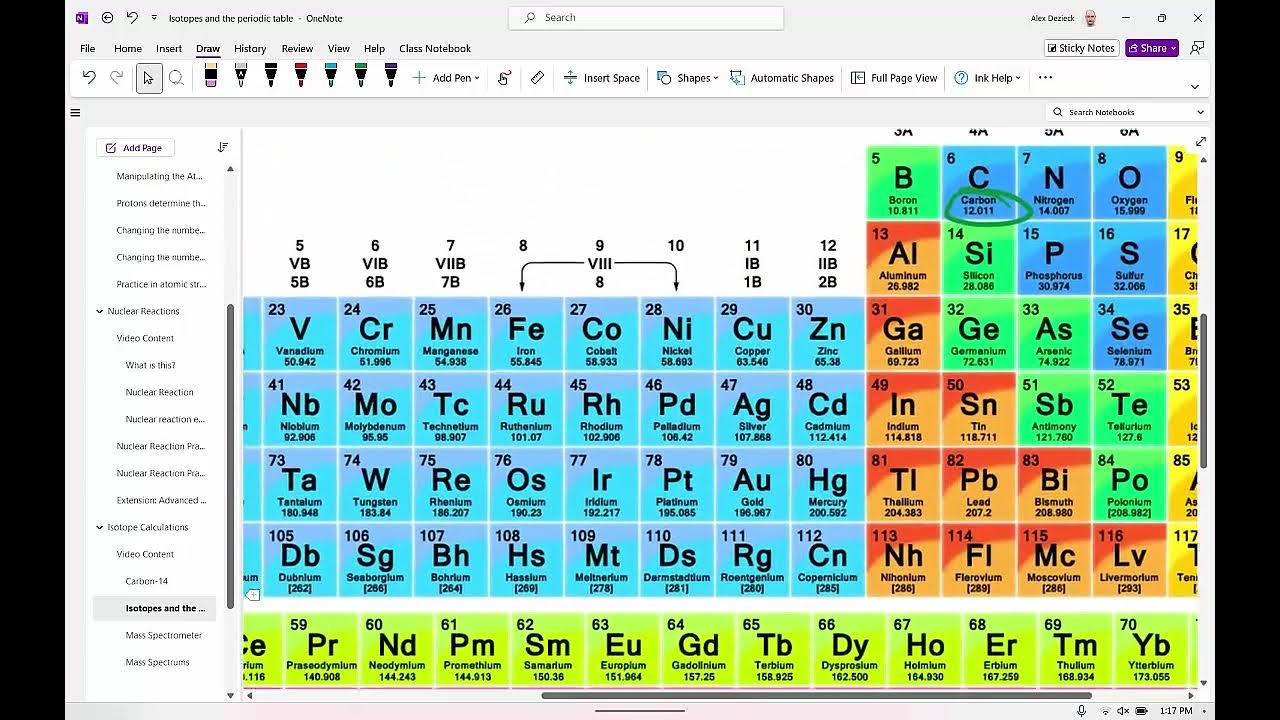What Are Radioactive Isotopes (radionuclides) | Properties of Matter | Chemistry | FuseSchool
Summary
TLDRThis video explains the concept of isotopes, focusing on their role in atomic structure and stability. It discusses how isotopes of an element have the same chemical properties but different numbers of neutrons. It highlights the difference between stable and unstable isotopes, with an emphasis on radioactive isotopes like tritium. The video explores how these radioisotopes are used in medicine, including as tracers for medical imaging and in radiotherapy for cancer treatment. Ultimately, isotopes play a key role in both science and medicine.
Takeaways
- 😀 The identity and chemical properties of an atom are determined by the number of protons in its nucleus.
- 😀 Neutrons act as 'nuclear glue' that help hold protons together in heavier atoms to prevent them from repelling each other.
- 😀 Isotopes of an element have the same number of protons but a different number of neutrons.
- 😀 Hydrogen has three isotopes: hydrogen-1 (protium), hydrogen-2 (deuterium), and hydrogen-3 (tritium), each with 0, 1, and 2 neutrons respectively.
- 😀 The presence of different isotopes does not change the chemical identity of the element; they still react chemically the same way.
- 😀 Stable isotopes are common in nature and form the basis of much of the world around us.
- 😀 Unstable isotopes, or radioisotopes, can undergo radioactive decay when their nuclei are unstable, rearranging themselves and releasing particles.
- 😀 An analogy for unstable nuclei is a person carrying too many boxes, where the system will drop excess boxes to stabilize itself.
- 😀 Radioisotopes, such as tritium, are used in medical applications like tracers for imaging and to understand body chemistry.
- 😀 Radioisotopes are also employed in radiotherapy to kill malignant cancer cells.
- 😀 The key points about isotopes: they have the same chemical properties, can be stable or unstable, and have important applications in medicine and chemistry.
Q & A
What determines the identity and chemical properties of an atom?
-The identity and chemical properties of an atom are determined by the number of protons in its nucleus.
Why do heavier elements require neutrons in their nuclei?
-Heavier elements require neutrons to provide nuclear glue, which helps hold the protons together and prevents their positive charges from repelling each other.
What are isotopes?
-Isotopes are variants of an element that have the same number of protons but different numbers of neutrons in their nuclei.
How do isotopes of hydrogen differ from one another?
-The three isotopes of hydrogen—Hydrogen-1, Hydrogen-2 (Deuterium), and Hydrogen-3 (Tritium)—differ in the number of neutrons they contain: 0, 1, and 2 neutrons, respectively.
What is the key point about isotopes in relation to their chemical behavior?
-Isotopes of the same element have the same number of protons and, therefore, the same chemical properties, meaning they will react chemically in exactly the same way.
What happens when an atom has too many or too few neutrons in its nucleus?
-When an atom has an imbalance of neutrons, the nucleus becomes unstable and may rearrange itself, emitting particles in the process—a phenomenon known as radioactive decay.
What are radioisotopes?
-Radioisotopes are isotopes that have unstable nuclei and undergo radioactive decay as they try to reach a more stable state.
How are radioisotopes used in medicine?
-In medicine, radioisotopes like Technetium-99 are used as tracers to visualize body processes, such as blood flow, in medical imaging and x-rays.
How can radioisotopes be used in chemical research?
-Radioisotopes act as markers in chemical reactions, allowing chemists to track how substances interact and react during experiments.
What is one of the medical applications of radioisotopes beyond imaging?
-Radioisotopes are also used in radiotherapy to target and kill malignant cancer cells.
What is the significance of isotopes in modern science?
-Isotopes are crucial in various fields of science, including medicine, chemistry, and research, as they help trace processes, treat diseases, and understand atomic behavior.
Outlines

This section is available to paid users only. Please upgrade to access this part.
Upgrade NowMindmap

This section is available to paid users only. Please upgrade to access this part.
Upgrade NowKeywords

This section is available to paid users only. Please upgrade to access this part.
Upgrade NowHighlights

This section is available to paid users only. Please upgrade to access this part.
Upgrade NowTranscripts

This section is available to paid users only. Please upgrade to access this part.
Upgrade Now5.0 / 5 (0 votes)





